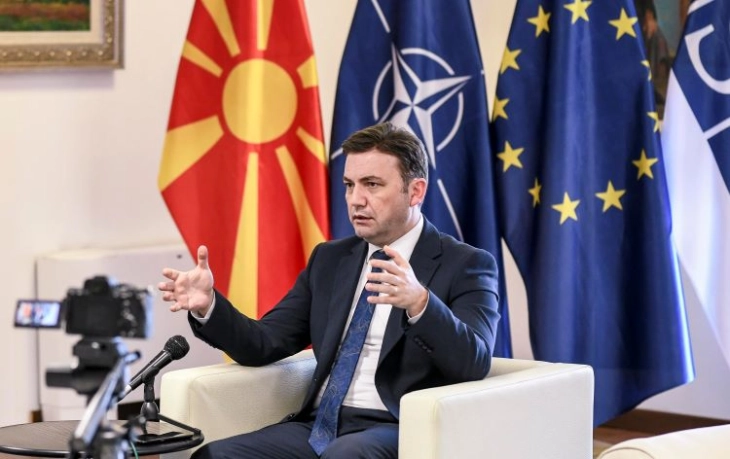Osmani: Non-party consensus lays out path to European relations between Skopje and Sofia
- The inclusion of the Bulgarian minority in the Constitution is important for two reasons, Foreign Minister Bujar Osmani said.
- Post By Silvana Kocovska
- 13:46, 4 March, 2023

Skopje, 4 March 2023 (MIA) - The inclusion of the Bulgarian minority in the Constitution is important for two reasons, Foreign Minister Bujar Osmani said.
“First, because it gives a direction as to how Macedonian-Bulgarian relations will be set up in the long term in the future. While the Republic of Bulgaria tried to put those relations in a historical context, we found a solution that those relations will be set in a way of communication between two communities, the majority Macedonian people and the minority Bulgarian community, who live in a normal coexistence in Republic of North Macedonia. This is how the path of relations between the two countries, of the two peoples, will be laid out, emphasizes Minister Osmani in an interview with Racin.mk.
Solving this issue in this way, Osmani noted, is important for the second reason, and that is to continue the EU accession negotiation process.
“We will have to reach a non-party consensus, leave aside the interests of daily politics, sit down and analyze all aspects of the constitutional amendments. I assure you that both at the expert and political level, and at any other level, arguments "for" will dominate for the constitutional amendments because they are in our interest,” FM Osmani added.
In the interview, he referred to the culture of dialogue and compromise, through which the European idea can be spread in the region.
“Our culture of compromise, culture of dialogue, which, unfortunately, is becoming increasingly rare not only in the region, but also in the world, makes North Macedonia a reference for how the European idea can be spread in the region,” Osmani said.
According to him, the fact that there has been serious progress now in Brussels (in the Belgrade-Prishtina dialogue), the fact that this progress can take its final form precisely in Ohrid has its own symbolism.
“First of all, because of the successes of the Ohrid Framework Agreement, offering a model of how ethnic issues are resolved, and it is a recognition of North Macedonia as an important factor in the region, i.e., as a contributor to stability and security in the region, thus reflecting our functional inter-ethnic democracy,” Osmani pointed out.
In the interview, Minister Osmani said that "there are two potential weak links, weak points in the region. One is the Kosovo-Serbia dispute and the second is Bosnia and Herzegovina and the difficulties in the functioning of the Dayton Agreement" and that "the closure of one of these two issues will be a significant step towards its stabilization, reconciliation and further Euro-Atlantic consolidation of the Western Balkans.”







